Equine
Laparoscopic Surgery In The Horse
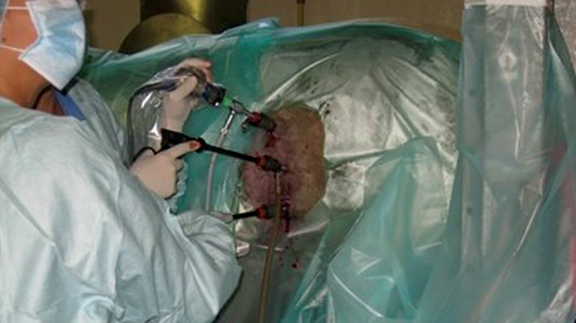
By Lauren Lamb, DVM
Laparoscopic surgery is a form of minimally invasive surgery that can be performed on a horse. The minimally invasive surgery is performed through small skin incisions (1/2 to 3/4 of an inch). These skin incisions are called laparoscopic surgical portals. Most surgeries require three to five surgical portals.
The number of portals depends on the type of surgery being performed. A long specialized camera is placed through one of the laparoscopic portals. The camera is then connected to a monitor, which will project the image seen within the horse’s body.
Specialized long instruments are placed through the other skin incisions and the surgical procedure is performed under direct observation with the laparoscopic camera. Traditional laparoscopic surgery is performed without the surgeon placing a hand within the horse’s body.
Laparoscopic surgery has several advantages over traditional surgical techniques. With laparoscopic surgery, the skin incisions are a fraction of the size compared to traditional surgical techniques.
Small incisions result in lower incisional complication rates, such as incision infection or dehiscence (when the surgical incision falls apart).
The small skin incision also results in a much faster return to training and performance. Frequently the time a horse is out of training following a laparoscopic surgery is reduced by 50 to 70 percent compared to traditional surgical techniques.
Another advantage of laparoscopic surgery is the ability to avoid general anesthesia. Most laparoscopic surgeries are performed with the horse standing and sedated in a set of stocks. Local anesthetics, such as lidocaine, are used to block the skin at the location for the surgical portals. Lidocaine will also be used to desensitize the organ within the body on which the surgical procedure is being performed.
To read more pick up a copy of the February 2018 NTFR issue. To subscribe call 940-872-5922.
Equine
AQHA Horse of the Year
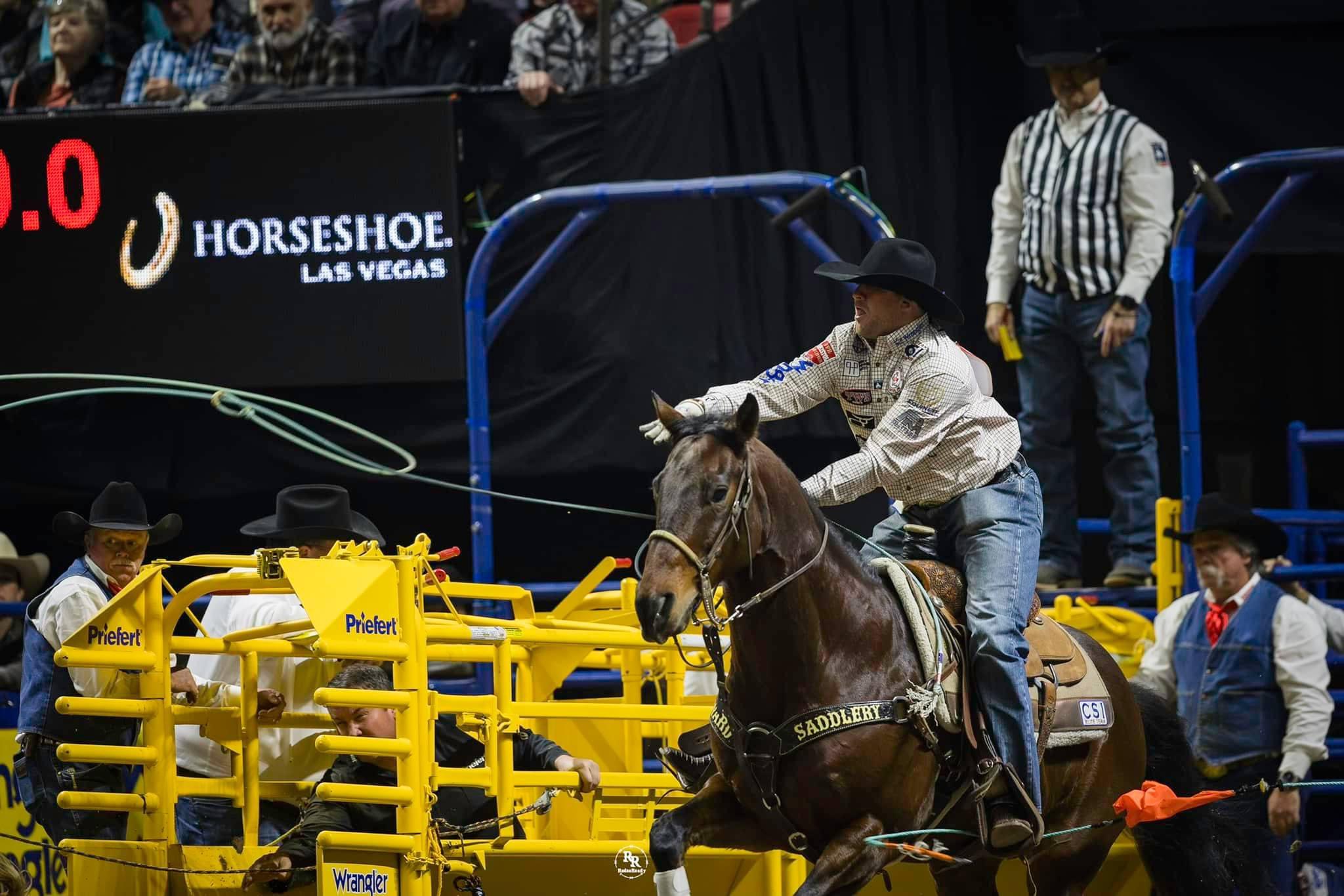
By Krista Lucas Wynn
Each year, when the professional rodeo season wraps on Sept. 30, the Professional Rodeo Cowboys Association and Women’s Professional Rodeo Association announce the Nutrena Horse of the Year, presented by the American Quarter Horse Association, in each event. This is a prestigious award, voted on by the members of the associations. To be named Horse of the Year by fellow competitors is a high honor only a few achieve.
To read more, pick up a copy of the November edition of North Texas Farm & Ranch magazine, available digitally and in print. To subscribe by mail, call 940-872-5922.
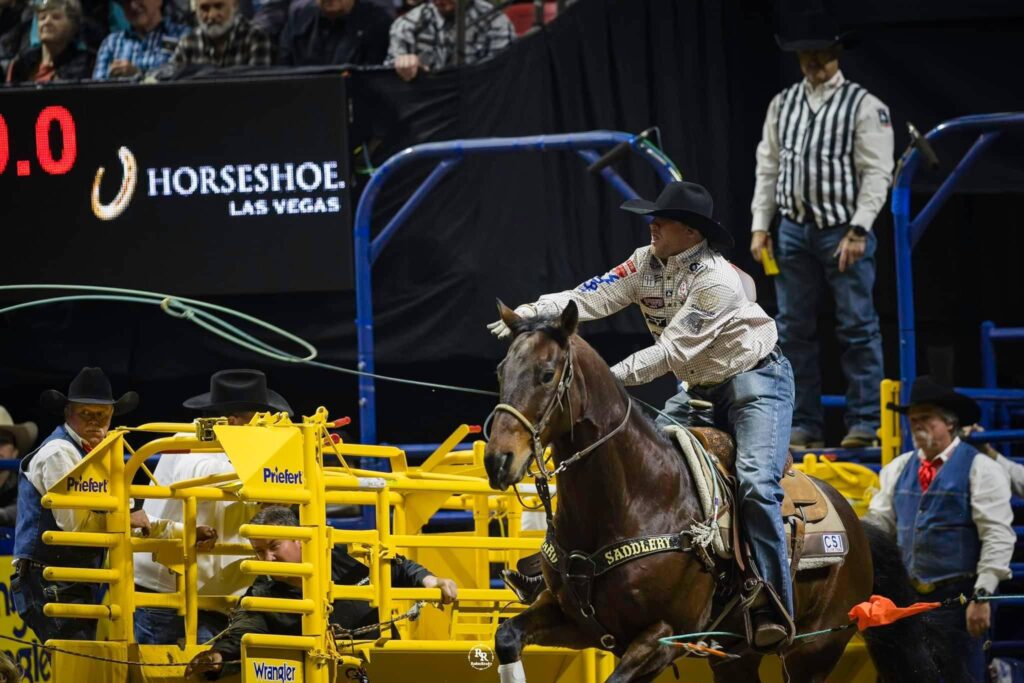
Equine
Tuff Enough: Tuff Hardman Wins Big At Cheyenne Frontier Days
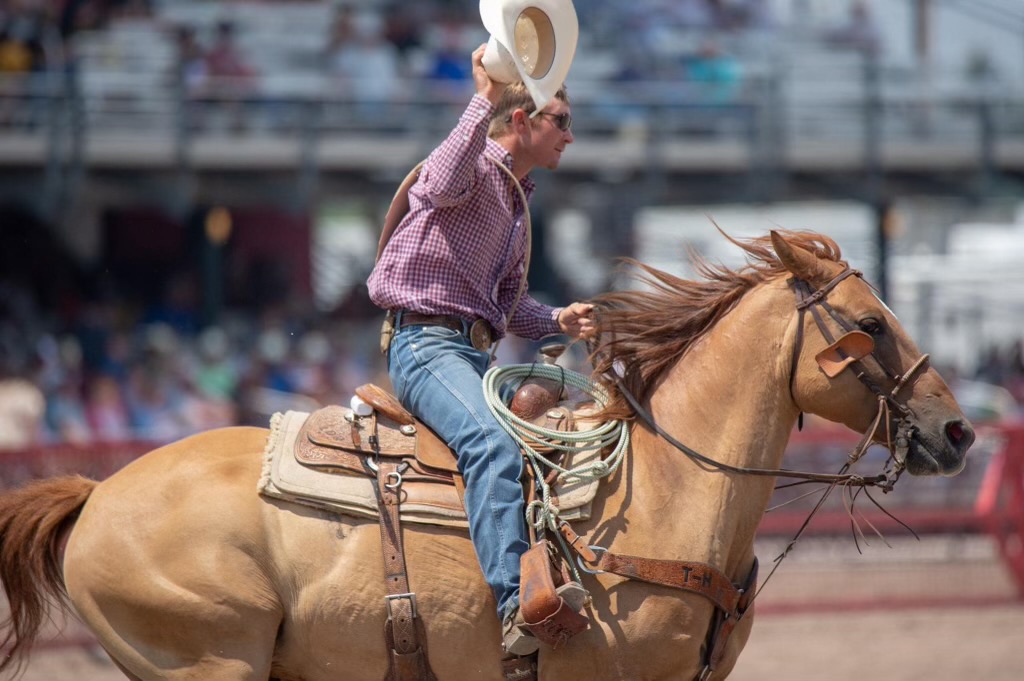
By: Krista Lucas Wynn | Copy Editor
The name, “Daddy of ’em All,” instantly brings to mind the world’s largest outdoor rodeo and western celebration. Cowboys and cowgirls from all across the country dream of competing on the iconic Cheyenne arena dirt.
Every July, pro rodeo contestants travel to Cheyenne, Wyom. to vie for the title of champion of the Cheyenne Frontier Days. The rodeo is steeped in western tradition and celebrated the 125th year this summer. With nearly two weeks of rodeo action, fans watched bareback riding, calf roping, breakaway roping, saddle bronc riding, team roping, steer wrestling, barrel racing, bull riding, and steer roping.
Steer roper, Tuff Hardman, knew winning “the Dad” was a tall order, but with a good horse and a few prayers he left no doubt who the best steer roper at Cheyenne was when it was all said and done. After two rounds, Hardman qualified back for the finals tied for ninth place with a time of 30.8 seconds.
To read more, pick up a copy of the September issue of NTFR magazine. To subscribe by mail, call 940-872-5922.
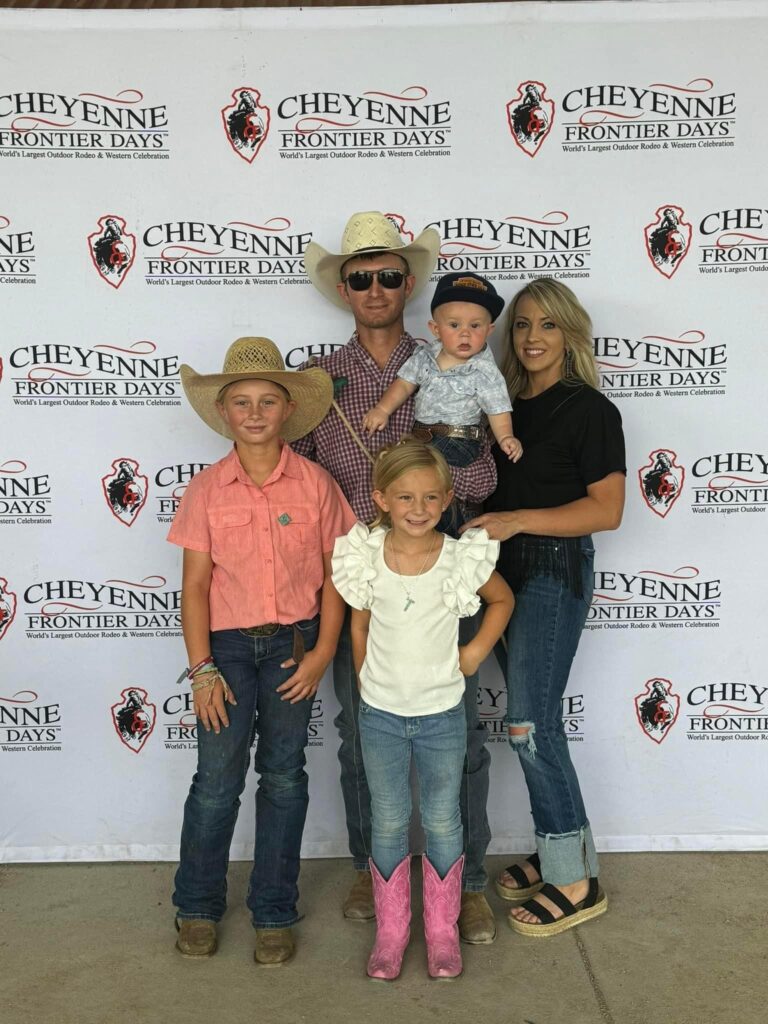
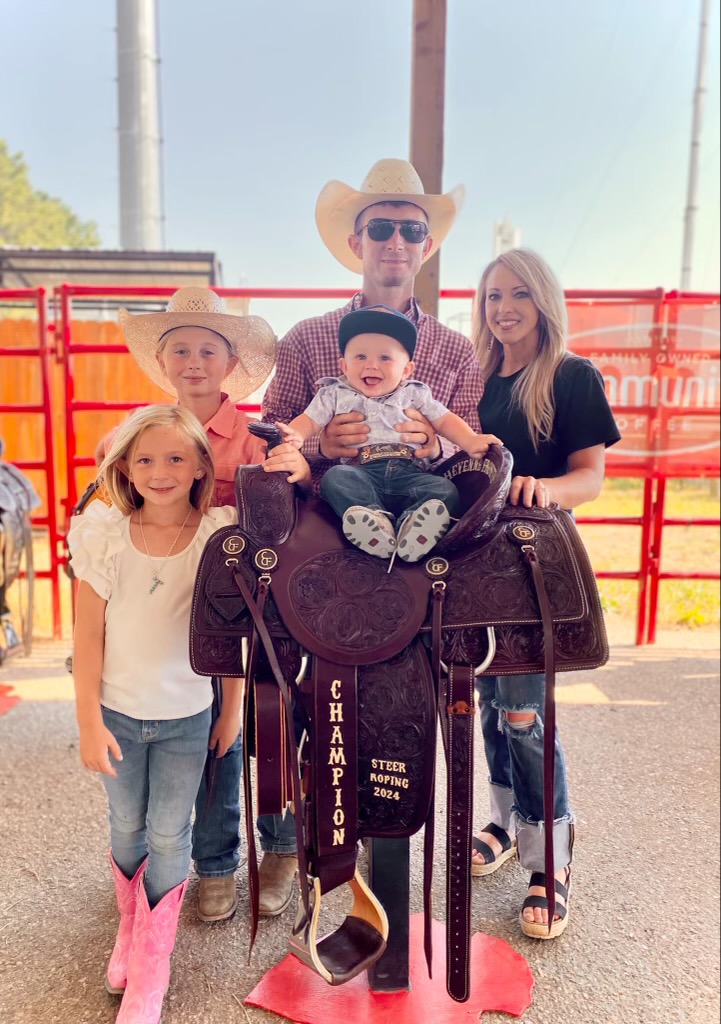

Country Lifestyles
Mandy Cleveland & Stable Strides Farm
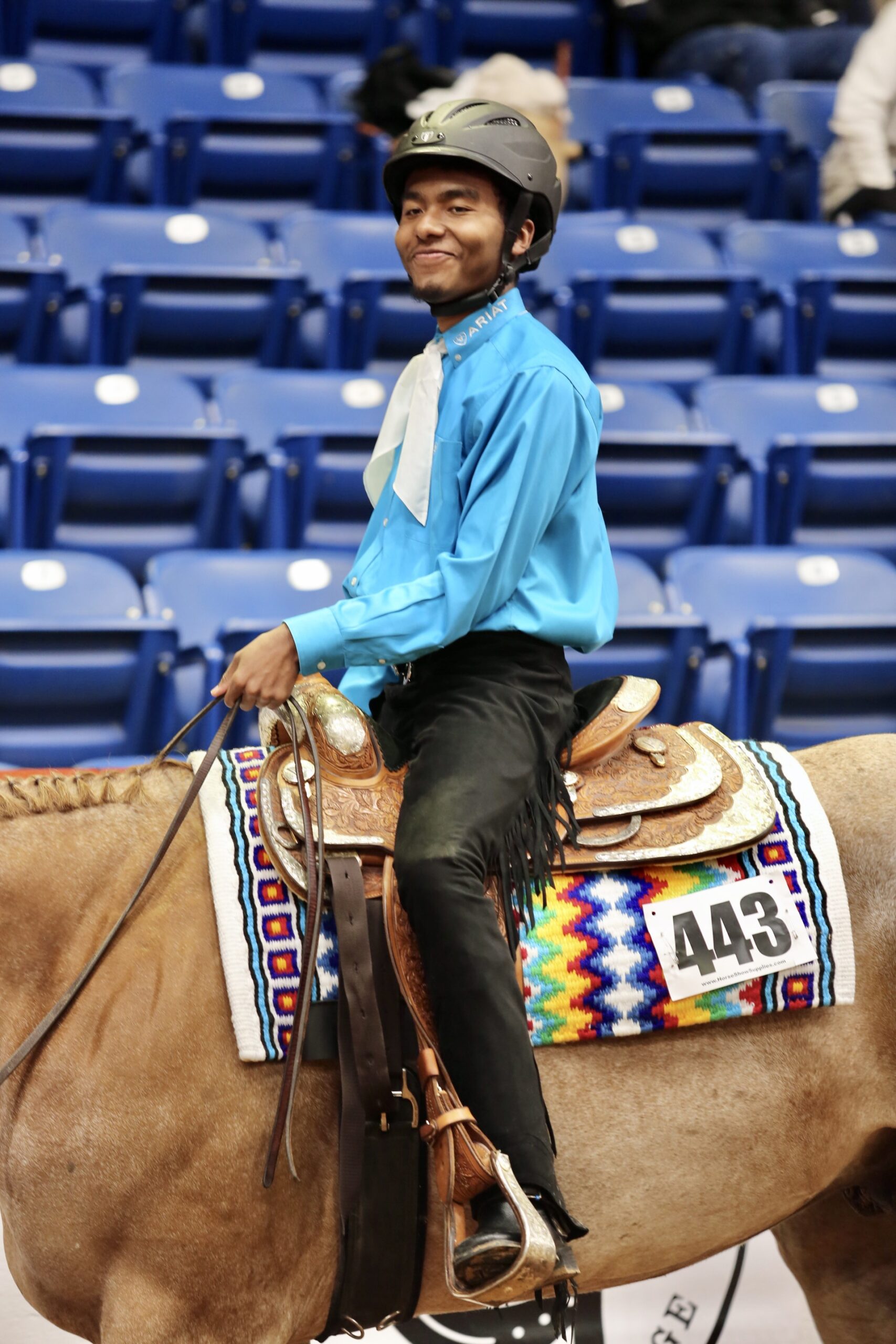
Utilizing the horse to human connection.
By: Hannah Claxton | Editor
Deep in the heart of Texas, both humans and horses at Stable Strides Farm in Pilot Point, Texas aer demonstrating just how big their hearts really are. Founded by Mandy Cleveland in 2001, Stable Strides Farm serves dozens of Equestrians with Disabilities and Veterans each week.
Deep in the heart of Texas, both humans and horses at Stable Strides Farm in Pilot Point, Texas aer demonstrating just how big their hearts really are. Founded by Mandy Cleveland in 2001, Stable Strides Farm serves dozens of Equestrians with Disabilities and Veterans each week.
“My boys have been riding since they were 18 months old, and for the first 17 years they had a leader and sidewalker. When we moved here, and Mandy started teaching them, she just said, ‘Let’s see what they can do,’ and they ride independently now,” Danielle Frank explained, whose two sons, Adison and Aiden, ride with Stable Strides Farm. “Mandy is amazing beucase she doesn’t place any limits on them, she always wants to see what they can do.”
It is her dedication to never setting limits that earned Cleveland a spot as a national finalist for the NSBA 2024 Dianne Eppers Cowgirls Reaching-Out-to-Community Award. The award was established by the NSBA Foundation to recognize cowgirls across the industry for their selfless contributions to the equestrian community.
To read more, pick up a copy of the September issue of the NTFR magazine. To subscribe by mail, call 940-872-5922.
(Photos Courtesy of Hannah Claxton)
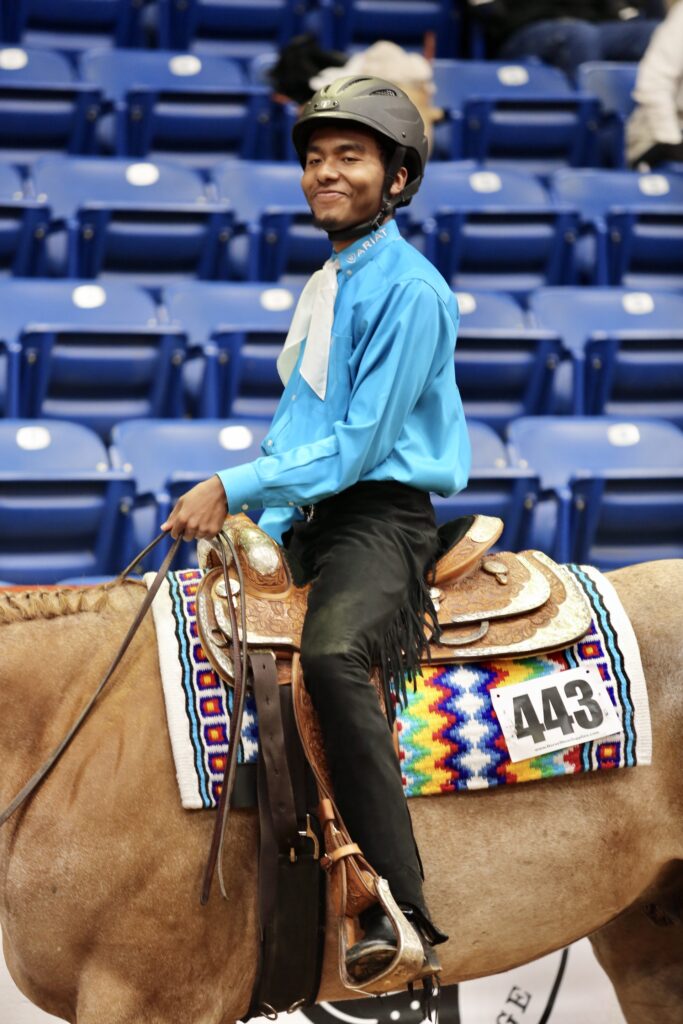
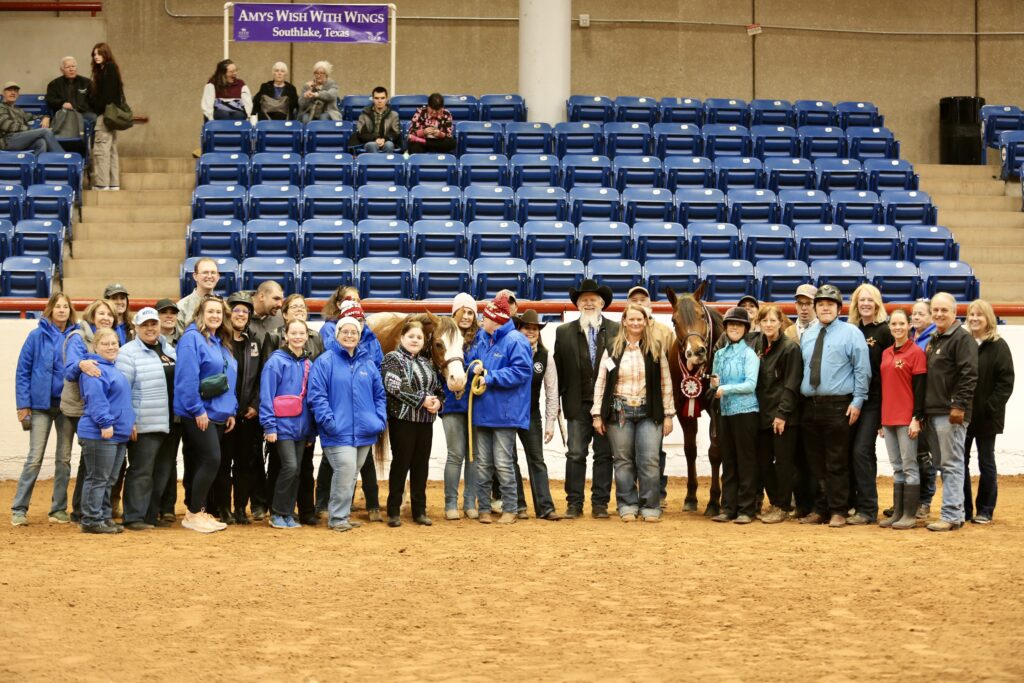
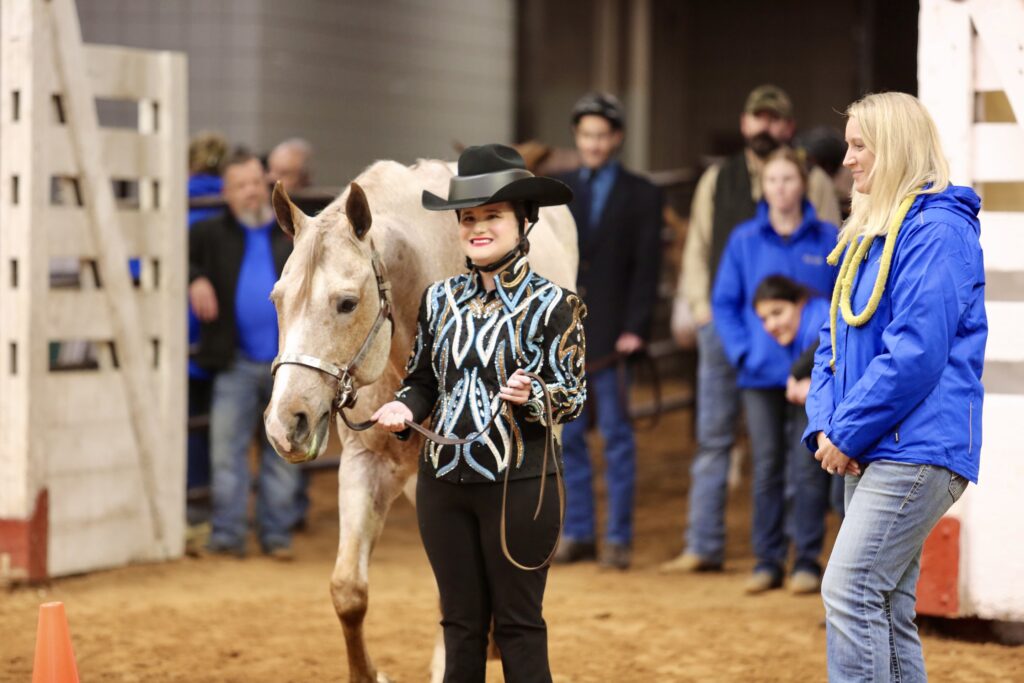
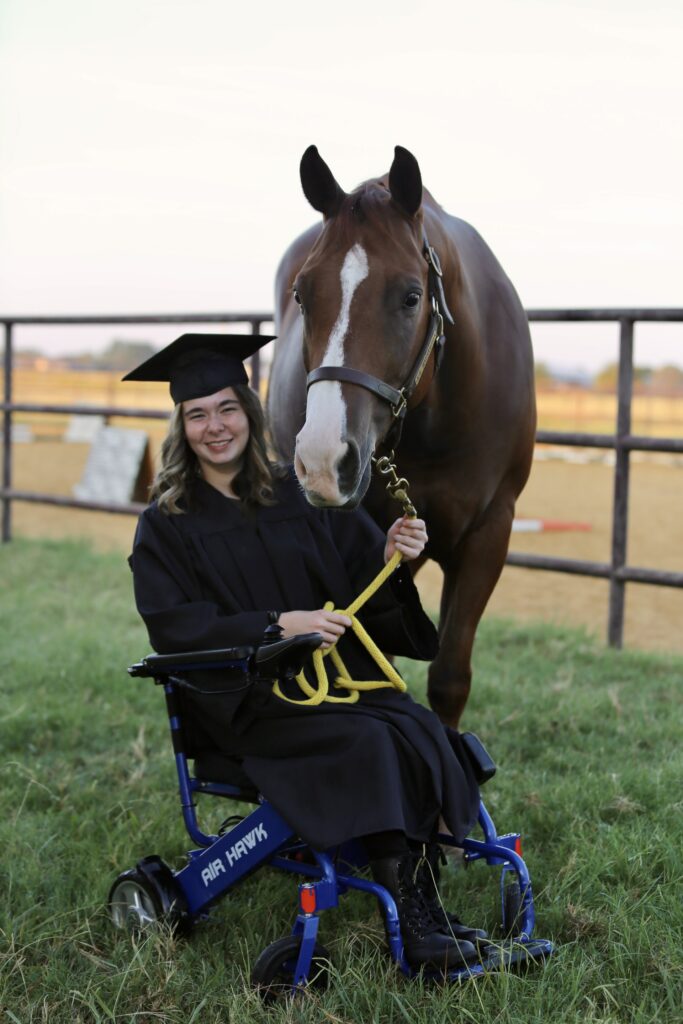
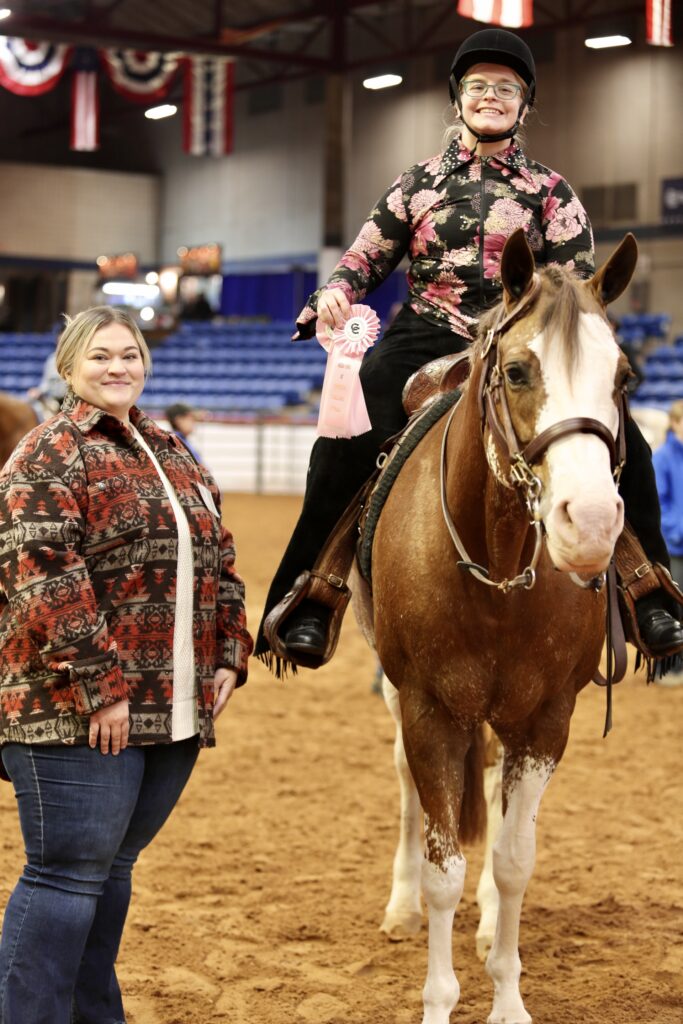
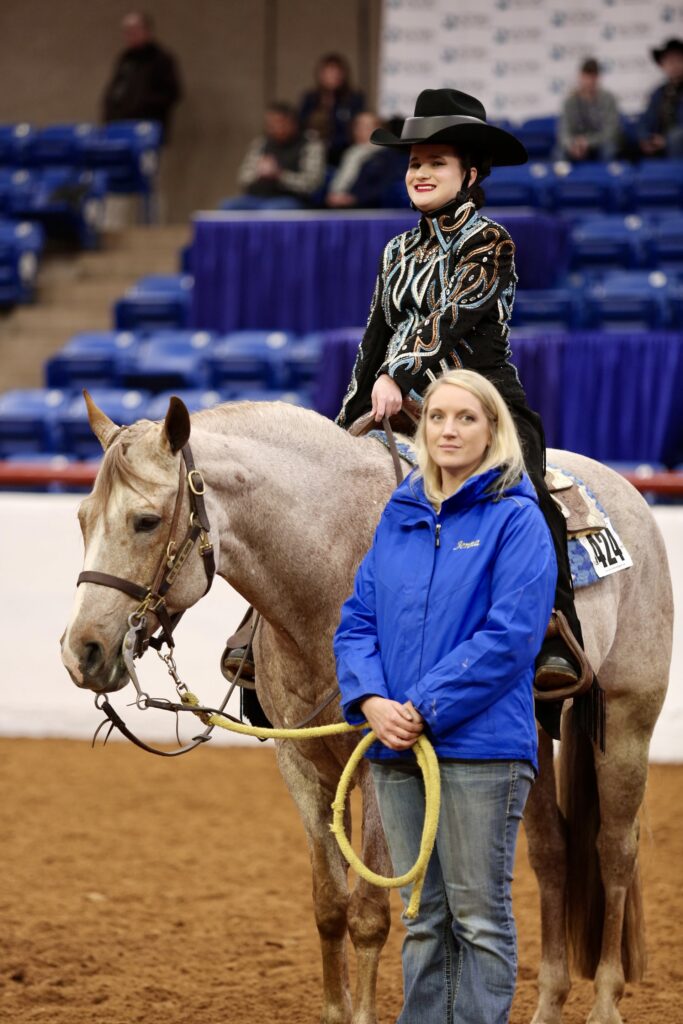
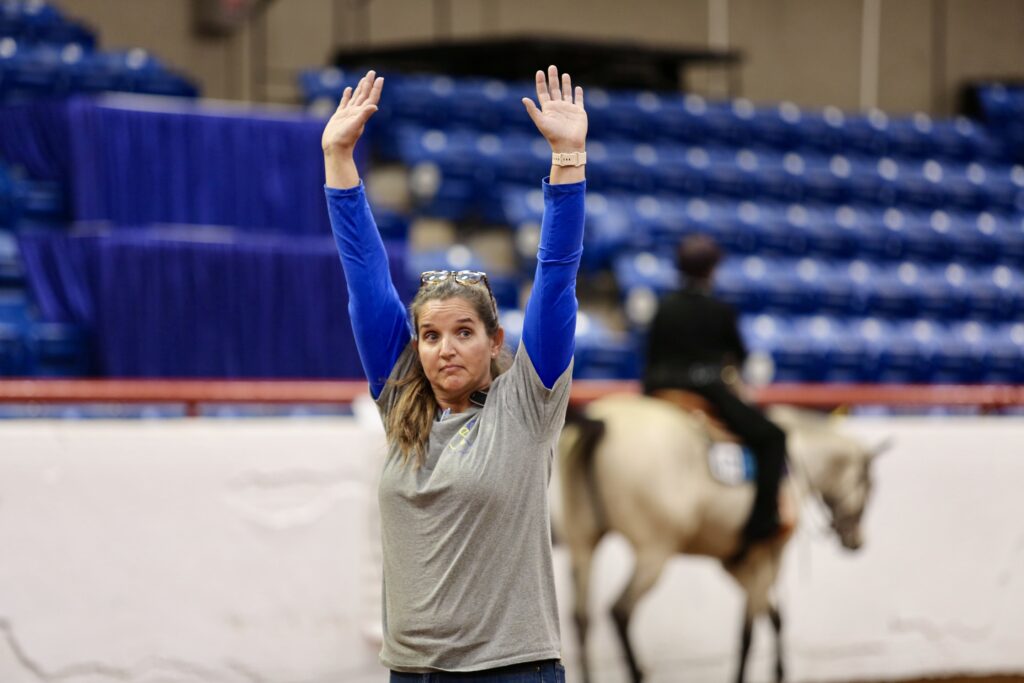
-

 Country Lifestyles2 years ago
Country Lifestyles2 years agoScott & Stacey Schumacher: A Growth Mindset
-

 Country Lifestyles8 years ago
Country Lifestyles8 years agoStyle Your Profile – What your style cowboy hat says about you and new trends in 2017
-

 HOME8 years ago
HOME8 years agoGrazing North Texas – Wilman Lovegrass
-

 Outdoor10 years ago
Outdoor10 years agoButtercup or Primrose?
-

 Country Lifestyles5 years ago
Country Lifestyles5 years agoAmber Crawford, Breakaway Roper
-

 Country Lifestyles9 years ago
Country Lifestyles9 years agoJune 2016 Profile – The man behind the mic: Bob Tallman
-

 Country Lifestyles8 years ago
Country Lifestyles8 years agoDecember 2016 Profile, Rusty Riddle – The Riddle Way
-

 Equine1 year ago
Equine1 year agoThe Will to Win




